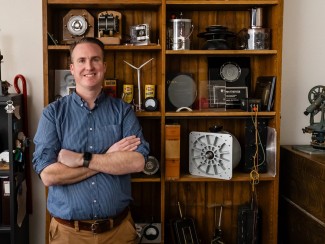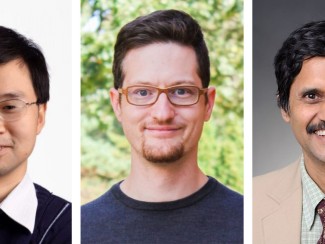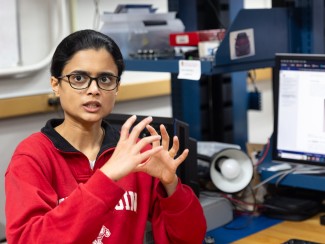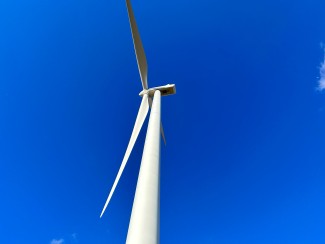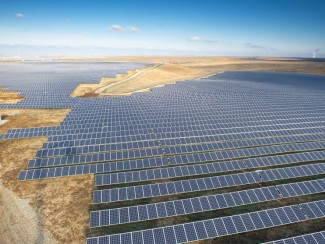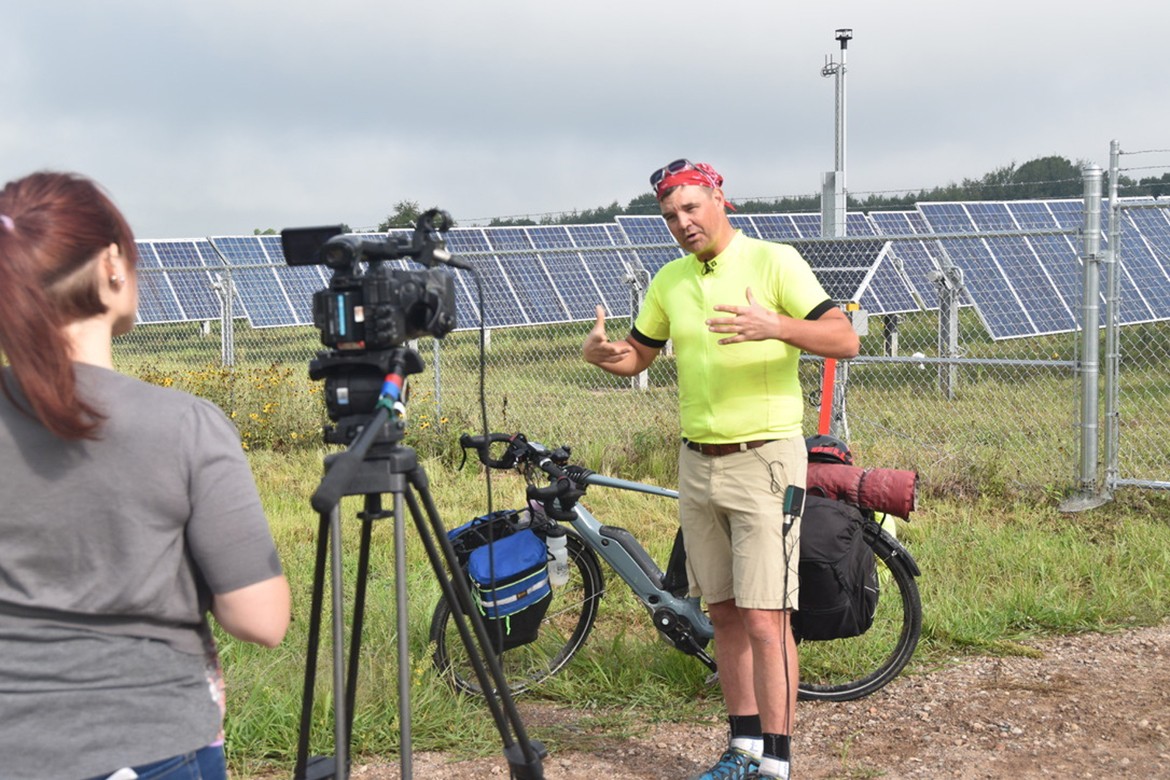
For some Wisconsinites, Puerto Rico is closer than others.
When Hurricane Maria hit Puerto Rico in September 2017, UW-Madison engineering professor James Tinjum was particularly affected, with relatives currently living on the island and his fiancé having grown up there. He wanted to help beyond just donating goods for immediate consumption. He wanted to make a lasting impact.
“Bottles of water, flashlights and baby diapers only go so far,” Tinjum said. “There also needs to be longer-term efforts to help out an island that is literally devastated.”
Since the hurricane, Tinjum has channeled his efforts to help with long-term, resilient, sustainable disaster relief. He recently returned from a two-week bike trip, #BikeTheSun, to raise awareness about solar energy and money for an orphanage in Puerto Rico. Along the way, Tinjum stopped at solar sites to meet those working in the solar industry. He also attracted the attention of many media outlets along the way. (For more information about his journey, visit solarparaninos.com).
Tinjum organized a project to provide aid to Hogar Albergue para Niños Jesús de Nazaret, a non-profit shelter in Puerto Rico for abused children that have been referred by the Department of the Family. The shelter currently hosts 11 children between 3 and 9 years old in addition to three infants, which takes a staff of 21 to provide 24-hour support.
“A shelter is an organization that is already marginalized even when things are good on the island, and now things are devastating. We want to help such an organization where we can go in and make a meaningful impact with long-term benefits,” Tinjum said.
Tinjum wants to install solar panels at the shelter to significantly reduce its energy costs. The installation is expected free up at least $500 USD per month, allowing the shelter to invest more money to help the children.
While the project is not directly related to the devastation of the hurricane, it’s a step toward overall relief—and sustainability.
“The shelter is a non-profit, so if there’s nobody on the island who has the resources after the hurricane to support them, it’s even more important for them to have projects like this,” Tinjum said.
Tinjum is working with the UW-Madison student chapter of Engineers Without Borders (EWB), graduate students in the Sustainable Systems Engineering (SSE) distance degree program which he advises, and the Puerto Rico Relief Fund of South-Central Wisconsin (PRRF-SCW) to implement and fund the project, known as Solar Para Niños. The project was recently accepted by the leadership of UW-Madison EWB, and the project planning and logistics are rapidly advancing.
Students will coordinate the majority of the planning and project management. Not only will they learn about renewable energy resiliency and sustainability, they will be participating in a project that will have a real and immediate impact on people in need.
For example, students in the Sustainable Systems Engineering online master’s degree program will use the project as part of their capstone requirement. They’ll apply the skills they have learned at UW-Madison directly to the real world.
The project also promotes awareness of engineering and disaster response, infrastructure resiliency and sustainable energy system design.
Tinjum is professionally and personally committed to sustainability. In addition to helping create sustainable projects like Solar Para Niños, he biked 1,300 miles around the Midwest last summer to raise awareness about wind energy in a campaign called #BiketheWind.
This time, his focus is on solar energy. The solar installation will be funded by donations—Tinjum has said he will cover his own travel and coordination costs—so the installed system will depend largely on how much is raised. Tinjum wants to install the solar panels, possibly with battery backup, within approximately one year, but the timeline depends on funding and other logistics.
To accomplish the minimum project objectives of reducing the shelter’s utility bills by $500 per month, the target is to raise $60,000 by July 1, 2018. To completely address monthly electricity bills of $1,000 per month, over $100,000 would be needed by the end of 2018. Visit www.solarparaninos.com/donate to donate to the project fund.
Tinjum’s goal is to not only help the center’s children but to demonstrate the viability of solar projects so that other organizations and charities have a model for similar projects. A similar solar panel project was installed at the San Juan Hospital del Niño (children’s hospital) by Tesla in October 2017.
In Puerto Rico, solar is 0.41 percent of the total energy mix. It is not insignificant, but there is room for growth, according to Tinjum.
Follow #SolarParaNiños to learn more about the project as it evolves, and visit www.solarparaninos.com/donate to donate to the project fund. Even when you’re 2,000 miles away, you can make a difference.
Solar power is just one example of alternative energy that can be used in projects like this and beyond. UW-Madison offers a number of courses in renewable and alternative energy, including wind energy and solar energy design course. For more information, visit epd.wisc.edu.

